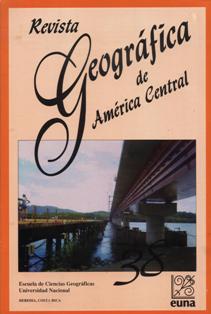FUERZA DE TRABAJO NICARAGÜENSE EN GUANACASTE
Abstract
En este artículo, el autor, trata de exponer las condiciones en las cuales los emigrantes nicaragüenses se insertan en las actividades productivas agroindustriales en la provincia de Guanacaste, Costa Rica. El estudio está concebido como una investigación cualitativa que busca primordialmente recomponer la experiencia vivida por los emigrantes y, a partir de allí, extraer conclusiones que arrojan luz sobre la problemática de las condiciones de vida y las relaciones laborales que se establecen entre los emigrantes y las empresas contratantes.
Abstract:
In this article, the author tries to expose the conditions under which the Nicaraguan emigrants are inserted in agricultural activities in Guanacaste, Costa Rica. The study is conceived as a qualitative research that looks for primarily to recompose the experience lived by the emigrants and, starting from there, to extract conclusions that throw light on the conditions of life, and the labor relationships that settle down between the emigrants and the employing companies.
Aún en 1946, los personeros de la United Fruit Company estimaban que sólo “en la provincia de Guanacaste había 40.000” nicaragüenses buscando trabajo como peones. (Bourgois. 1989, cit. por Edelman. 1998:442).
Downloads
How to Cite
Issue
Section
License
Proposed policy for journals offering Open Access
Authors publishing their works in the Journal acknowledge and agree to the following terms:
a) Authors retain the copyrights to their works and guarantee the Journal the right to be the first to publish their works, under the Creative Commons License Attribution-NonCommercial-ShareAlike 4.0 International, CC BY-NC-SA 4.0 International (https://creativecommons.org/licenses/by-nc-sa/4.0/deed.es), which allows others to share works upon complying with the acknowledgment of authorship and mention of the Journal as the original publisher of the work.
b) Authors are permitted to separately establish additional agreements for the non-exclusive distribution of the official edition of the work published in the Journal (for example, authors may desire to place the work in an institutional repository or incorporate it into a book that is to published elsewhere) so long they acknowledgment to recognize the Journal as the original publisher. The aforementioned additional agreements must respect the terms of the non-profit character and sharing philosophy of the original license (CC BY-NC-SA 4.0 International, https://creativecommons.org/licenses/by-nc-sa/4.0/deed.es).
c) Authors are encouraged to archive the post-print or editor/PDF version in Open Access repositories.






 REVGEO is licensed under https://creativecommons.org/licenses/by-nc-sa/4.0/deed.es
REVGEO is licensed under https://creativecommons.org/licenses/by-nc-sa/4.0/deed.es
.svg_4.png)

_(1).png)
_(1)_(1)_(1)_1.png)
(2)(1)(1)(1).png)
